13 homemade cleaning products
Fed up of splashing out on expensive cleaning products? Here are some cheap natural alternatives that are super easy to make at home.
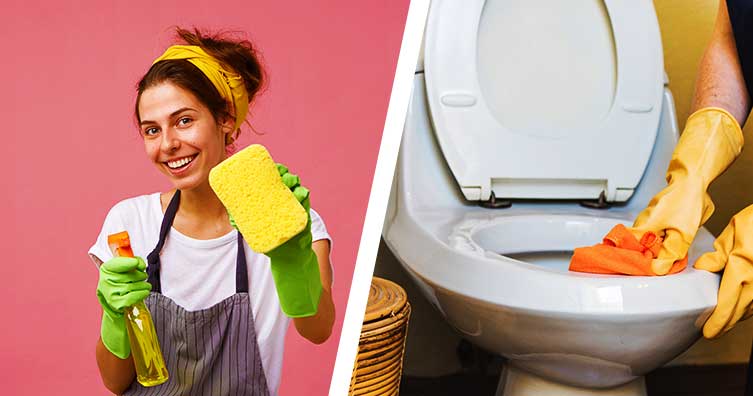
Credit (left): WAYHOME studio - Shutterstock
If there's one thing more annoying than having to clean the house, it's having to waste your precious pennies on overpriced cleaning products.
The good news is that there's no need to fork out on expensive cleaning supplies to get your floors, windows and even your microwave sparkling (trust us on this). You might already have everything you need to clean your whole flat sitting in your kitchen cupboards.
The alternative cleaning supplies below are cheap, versatile, non-toxic and multi-purpose. What more could you want?
Essential ingredients for homemade cleaning products
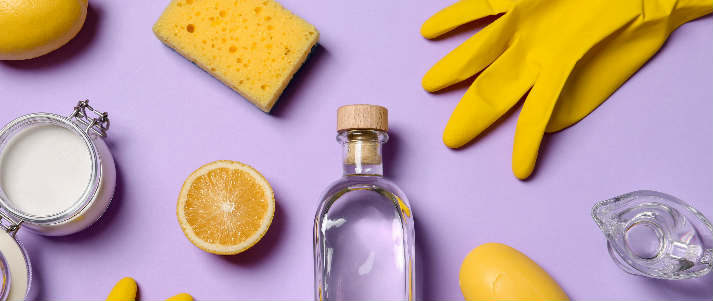
Credit: New Africa - Shutterstock
To make cheap cleaning products, you will need these ingredients:
- Vinegar lifts dirt because of its acidity levels
- Lemons have antibacterial and antiseptic qualities and cut through bad odours
- Baking soda/bicarbonate of soda is good for soaking up odours, and it foams when mixed with vinegar due to its alkaline properties
- Coca-Cola's carbonation and high acidity level help it clean up dirt, dissolve limescale and even remove rust
- Table salt has abrasive qualities and is a great absorber for soaking up liquids.
Best cheap cleaning products
These are the best cheap cleaning products that you can make at home:
-
Window cleaner
To make a homemade and natural window cleaner, mix equal quantities of white distilled vinegar and tap water in a spray bottle. Spray your windows with this solution, and use scrunched-up newspaper to wipe them down.
If your windows are really dirty, wash them with warm, soapy water first. Then, use the vinegar solution and dry newspaper to remove any streaks.
-
Drain unblocker
You don't need to rely on all those nasty, toxic foaming drain unblockers to get things moving.
Try pouring half a cup of baking soda down the blocked drain, and follow it with a half cup of vinegar. Cover the drain with a cloth and leave for about 10 minutes. You'll see science get to work as they react and start to foam.
Rinse with hot water after 10 minutes and you should find your homemade soda and vinegar combination has worked its magic.
If you're still struggling to clear it, you can also try cutting a tennis ball in half, placing it over the plughole and using pressure to create the same effect as a plunger.
-
Showerhead descaler
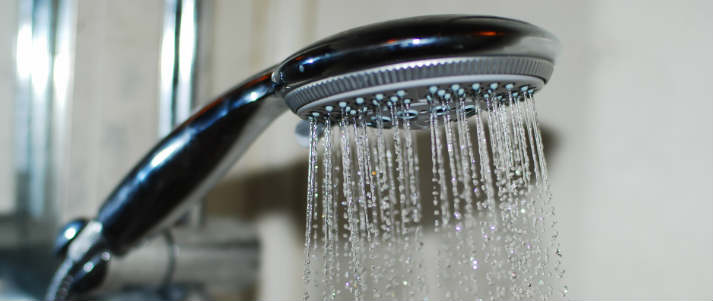
Credit: alexring - Shutterstock
If you share your shower with others and live in an area with high levels of limescale in the water, you're probably familiar with the problem of a scaly showerhead.
Sometimes, the buildup can get so bad it even prevents the water from flowing properly, and you find yourself struggling to wash under one single-jet drizzle.
To save you and your housemates from buying expensive limescale-removing products like Viakal, you can solve the issue cheaply by making your own cleaning product. All you need is vinegar, and you should end up with results similar to what you'd get with the best limescale removers.
Start by detaching the showerhead completely (if you're unsure how to do this, just unhook it from the wall).
Find a bucket or bowl that it can fit into (the smaller the bowl, the less vinegar you'll need to use) and fill it with white distilled vinegar until the showerhead is completely covered.
Leave it to soak for a couple of hours (overnight if you can). Then, remove the showerhead from the vinegar and scrub under warm water with a toothbrush (an old one, please!) – the flakes should easily come away.
-
Oven cleaner
Not only are oven cleaning sprays super potent and dangerous for your health (there's a reason you're told to cover absolutely everything in your kitchen and open all the windows when using them!), but they're pretty expensive to buy too.
Thankfully, homemade oven cleaner is a cheap and environmentally-friendly alternative to branded products.
To clean your oven using a natural alternative, start by using a dry scourer or brush to remove any bits of food from the inside of the oven.
Then, sprinkle a generous amount of baking soda across all the greasy bits and parts that need a good clean. Follow this by spraying vinegar on top of the baking soda, and watch it foam up as it gets to work on the tough grease.
Leave for at least 30 minutes (but probably closer to an hour or two if it's particularly grubby), then get scrubbing with a sponge, scourer or brush to make sure all the tough grease has been removed. Wipe down once or twice with a warm, damp cloth, and you're good to go.
-
Dishwasher or washing machine cleaner
If your washing machine or dishwasher smells bad and generally needs a cleanup, vinegar is perfect. It's non-toxic (so safe to run through your dishwasher) and weirdly, it's even good for your clothes.
Simply fill a plastic cup with white distilled vinegar and place this in the (empty!) machine. Run the machine on the hottest cycle and the vinegar and hot water together should break away any mould or mildew, leaving your washing machine or dishwasher smelling fresh.
Learning how to do laundry properly and how to look after your washing machine should mean it doesn't need quite as much maintenance. -
Homemade surface cleaner
You can mix vinegar with another household cleaning gem, the humble lemon, to cheaply make a heavy-duty, but natural, multi-purpose cleaner.
Make the concoction by adding the skin of a lemon to a small(ish) jar of distilled vinegar and leaving it for two days to pickle.
Then, pour the solution into a spray bottle, and you have a mixture that will remove tough grease and even pick up strong smells like fish from kitchen surfaces.
WARNING: Don't use vinegar to clean porous kitchen surfaces, like granite and marble, as the acidity can etch away at them. And if you're tempted to run some vinegar through your iron to clean that too, DON'T – it can damage the internal parts of the iron.
-
Chopping board cleaner
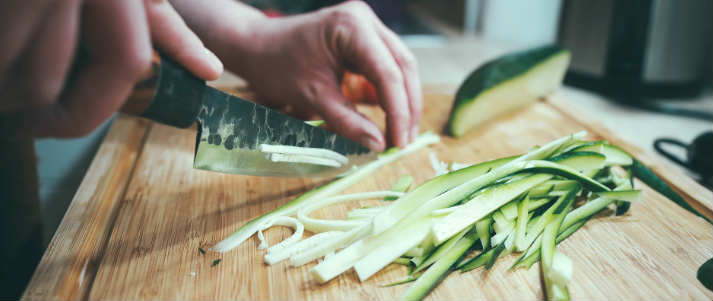
Clean your chopping and cooking surfaces by cutting a lemon in half and rubbing it across the whole surface. By some sort of miracle, lemon seems to be able to remove even some of the most brutal smells (even the dreaded fish guts).
If you have particularly tough stains or smells to clean up, try rubbing them with salt or throwing on a bit of baking soda before using the lemon.
-
Kettle descaler
Ever noticed little bits of calcium floating around in your cups of tea? You can fix this issue with just a bit of lemon and hot water – possibly the most natural homemade cleaning product going.
First, cut a lemon into eight chunks. Then, fill your kettle with water to just below the max level and add your sliced lemon.
Bring the kettle to a boil, then leave it to stand overnight (make sure you stick a post-it note warning your flatmates not to use it).
In the morning, throw the fruit away and give the kettle a good rinse (scrub the inside to help get the flakes off if necessary) before making your scale-free cuppa.
-
Bathroom mould remover
If your bathroom tiles tend to suffer from mould and mildew buildup, there's an easy way to keep on top of it that won't break the bank.
Mix a paste together out of equal parts baking soda and lemon juice and spread across the tiles (paying close attention to the mouldy bits, of course!).
Leave the paste to work its magic for around two hours, then rinse it off. Any tough spots can be removed using an old toothbrush.
-
Pot and pan cleaner
Burnt patches on pots and pans can be a total pain to get rid of – especially if you're afraid of damaging the pan by scrubbing too hard. But, once again, our homemade cleaning products come to the rescue.
Fill the saucepan with coke until the burnt area is completely covered (discount cola should be just as effective!). Bring to a boil, then pour away the coke.
Rinse and wash the pan with warm water, and you should find that the burnt parts of the pan come away pretty easily.
-
Toilet cleaner
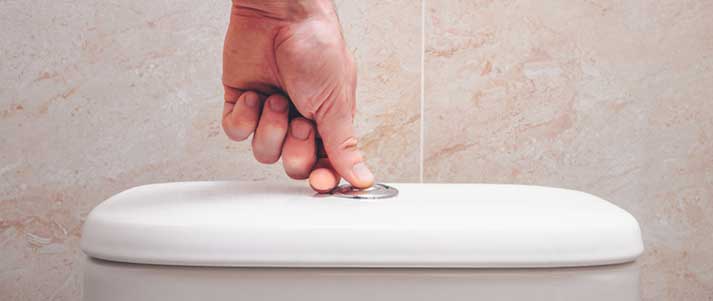
Credit: VanoVasaio – Shutterstock
If you've ever wondered what Coca-Cola does to your insides, this is a pretty clear (and worrying) indication.
When your toilet bowl starts to look a bit grey and discoloured, try throwing in a can of cola and leaving it overnight (coke cleans pretty slowly). In the morning, scrub away at the sides with a toilet brush and flush away.
The phosphoric acid works wonders when it comes to removing limescale and discolouration.
-
Microwave cleaner
This one's an old favourite in the world of homemade cleaning products.
Chop a lemon into quarters and put the slices into a microwave-proof bowl of water. Place the bowl in the microwave and 'cook' the lemon mixture on high for around three minutes.
The time will vary depending on how powerful your microwave is, but we'd suggest waiting until you notice the glass steaming up from all the evaporating lemon liquid.
This should get the hot lemon juice into all corners of the microwave, and the heat should loosen some of the tougher food splatters. Wipe down the insides with a cloth, and you'll hopefully find that it cleans up nicely.
-
Brass cleaner
Mix table salt with vinegar or lemon juice and you've got yourself a great homemade brass cleaner that doesn't stink the place out while using it like your traditional Brasso.
Simply wet a sponge with vinegar or lemon juice, sprinkle on the salt and then gently rub any dull brassware around the house. Rinse and dry immediately with a clean, dry cloth and watch it sparkle.
This also works great on stainless steel pans.
Struggling to evenly split cleaning tasks with your housemates? Read our tips on how to survive shared living.








